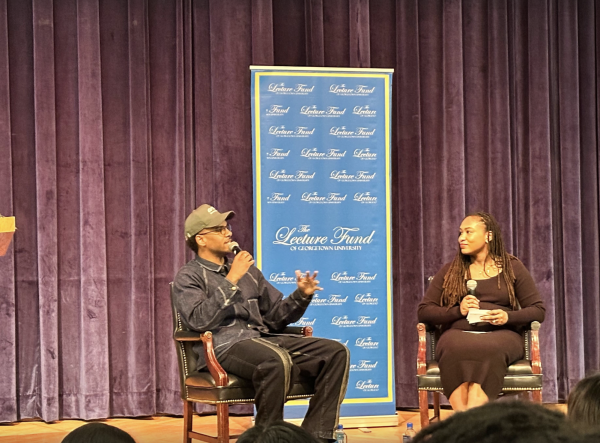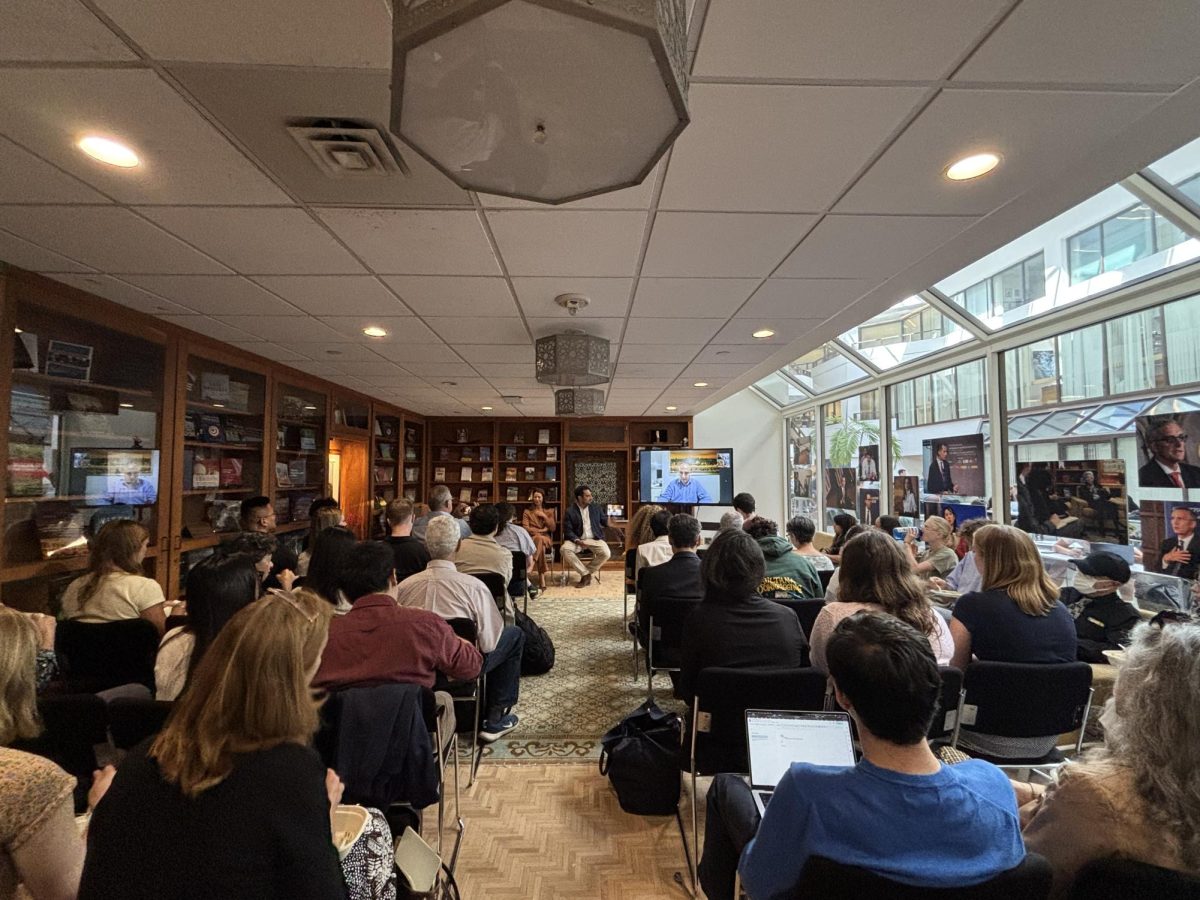Zack Fox, a comedian, DJ and “Abbott Elementary” star, reflected on how his upbringing has inspired his comedy career’s focus on Black culture and social justice Nov. 20.

The talk, sponsored by the Georgetown University Lecture Fund, a student-run group that invites speakers to campus, highlighted Fox’s blend of comedy and political commentary and how his experience as a Black American has influenced his work. Fox, who has emphasized issues of race and social dynamics in his work, encouraged students in attendance to use their voices to make a statement and to be unafraid of subverting traditional power structures.
He went on to say being a comedian means challenging prevailing norms and ideas.
“Being a jester is being here to poke at and rip away layers of accepted, agreed upon ideas,” Fox said during the talk. “Whether they’re good or bad doesn’t really come into play, just finding them and peeling that away.”
Fox said his experience with Blackness in the United States has informed how he approaches comedy and commentary.
“Growing up in the South, you’re constantly faced with being racialized and what that means, and it’s always going to be the original knife that I’m cutting with when I’m thinking about a joke,” Fox said.
“Being Black in America is already absurd, so being a Black jester is double absurd,” Fox added.
Fox, who started his career through social media posts, has built his career on discussing social issues and satirizing pop culture through comedy and rap. He reached national fame by playing the recurring character Tariq on the popular TV comedy “Abbott Elementary.”
Fox said comedy is a venue to discuss complex themes of race and power with a wide audience while still speaking directly to Black people.
“In my idea of being a jester, centering young Black people and Black freedom and Black liberation, which I think comes from comedy and informs comedy — if you’re always thinking about what that means, everybody else follows suit in that,” Fox said. “Black freedom introduces a compatibility for a multiracial freedom.”
Nicole Cuffy, a professor of English who moderated the talk, said Fox’s focus on Black voices and liberation is part of what makes his art so compelling.
“I like that connection to Black freedom because the act of centering Blackness during a creative process is an act of freedom in and of itself,” Cuffy said during the event.
Fox said he embraces the label of a political artist because it is a natural part of expression in standing up to the political status quo.
“You’re all really smart in here — I think everybody kind of knows, or can at least agree, that all art is political, whether you want it to be or not,” Fox said. “You have to approach these giants that lord over us and make fun of them and question why they exist. And by giants, I don’t just mean people, I mean ideas, concepts — everything should be up for scrutiny.”
Ruth Morgan (SOH ’27), the Lecture Fund’s secretary, said Fox’s commitment to politics and discourse is part of why the Lecture Fund asked him to be a speaker.
“With his work spanning across music, comedy and TV, Fox continues to deliver bold, unfiltered social commentary across multiple platforms,” Morgan said during the event.
Fox said social media has made that commitment to discourse more difficult as people become isolated and less used to offline relationships.
“When that muscle of fellowship atrophies, that’s how echo chambers start, that’s how you start to feel hopeless, that’s how doomerism starts.”
Fox, who was raised by a single mother in Atlanta, Ga., said his own experience with poverty as a child has helped guide his focus on community engagement and inspiration through his art.
“I’m the way I am because life was fucked up, but I do think when bad things happen to you and you take lessons from it, that’s very important,” Fox said. “Growing up with a single mom, having a very up-in-the-air lifestyle, not knowing where we’re going to be at, we’ve got this apartment, this eviction, this eviction, this apartment — I think I just became so rapidly reliant on creating joy for myself and for others.”
Fox encouraged students to embrace their own commitment to pursue what they are passionate about, saying they should not be afraid of failure, no matter their personal or family circumstances.
“Use what you have at your disposal right now and start failing right now, start doing what you want to do right now no matter how bad at it you are,” Fox said.



















